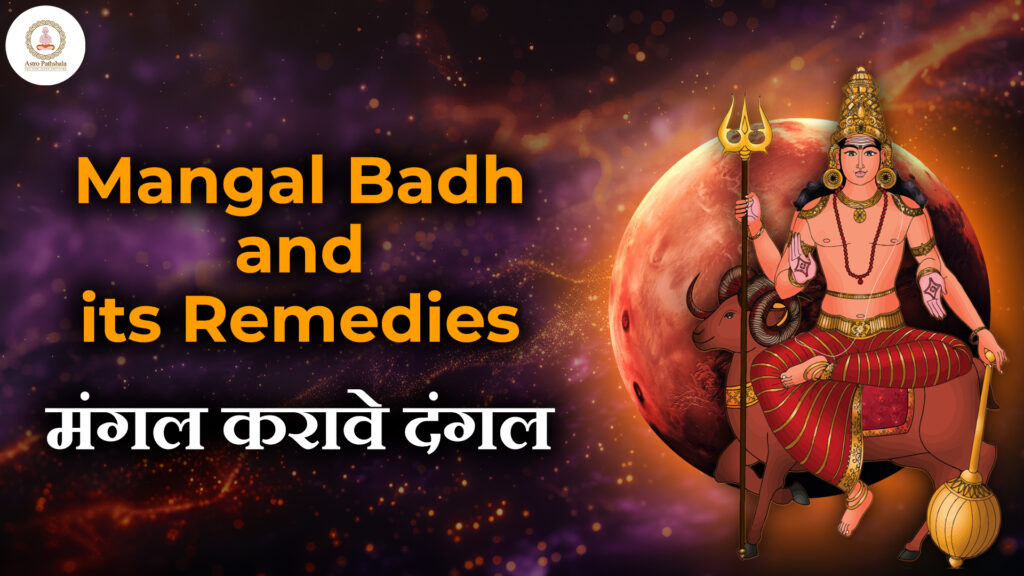Muhurat signifies a specific, favourable moment selected to initiate important tasks or events. This selection is based on a thorough analysis of planetary alignments, Nakshatras, and Tithis. The underlying belief is that carrying out significant activities during an auspicious Muhurat allows one to align their actions.

INTRODUCTION
In astrology, time plays a very important role. It is believed that every moment has its own unique energy, shaped by the positions of the planets and other celestial bodies. These energies influence everything we do, and they can affect the success or failure of our actions.
Muhurat is a special moment in time that is carefully chosen because it carries the most positive and favourable energy. Astrologers select this moment after analysing factors like the positions of planets, transit of moon in different zodiac signs, and other astrological elements. The idea is that starting something important during this lucky time will help align your actions with the supportive energies of the universe.
In simple terms, a Muhurat helps us choose the best time to take action, so that we can get better results and move forward with confidence. It is about working with the natural flow of the universe instead of going against it.
ELEMENTS INFLUENCING MUHURAT
1) Tithi (Lunar Day)
The Tithi, or lunar day, is based on the angle between the Sun and the Moon. Each Tithi holds a unique energy, and some are more favourable for specific tasks. For example:
Pratipada (1st day), Dwitiya (2nd day), Tritiya (3rd day), and Panchami (5th day) are generally considered good for starting new projects or activities.
Chaturthi (4th day) and Ekadashi (11th day) are less favourable and often avoided for new beginnings.
2) Nakshatras (Lunar Constellations)
Nakshatras are the 27 sections of the zodiac that the Moon travels through, each carrying distinct qualities and energies. Some Nakshatras are more favourable for specific events, while others should be avoided. For instance:
Favourable Nakshatras: Ashwini, Rohini, and Uttara Phalguni are ideal for marriages.
Purva Phalguni and Uttara Ashadha are good for starting new projects or ventures.
Avoided Nakshatras: Magha, Ashlesha, and Jyeshtha are often avoided for auspicious events because they can bring challenging or negative influences.
The right Nakshatra adds a strong insight to the chosen Muhurat, making the event more likely to succeed.
3) Karana (Half of a Tithi)
Each Tithi is divided into two equal parts, called Karanas. Karanas are specific blocks of time that hold significance for specific ceremonies / rituals and activities. They are an essential factor when calculating a precise Muhurat. Some Karanas are seen as favourable, while others are inauspicious. For example:
Inauspicious Karanas: Karanas like Bava and Vaidhrithi are avoided for major tasks or events.
4) Planetary Hours (Hora)
Each hour of the day is ruled by a specific planet, and these planetary hours are called Horas. The ruling planet of the hour can significantly influence the energy of that time. For example; different weekdays are ruled by different planets. Therefore, it is believed that, each day carry energy of each planet’s significant trait.
5) Role of the Moon and Its Phases
Moon is one of the most important planet in astrology, and its phases significantly impact the selection of a Muhurat. The two key phases are:
Waxing Moon (Shukla Paksha): This phase is ideal for starting new projects or ventures as it symbolizes growth, increase, and positive energy.
Waning Moon (Krishna Paksha): This phase is often avoided for major starts because it represents decline or diminishing energy.
Full Moon (Purnima) is considered too intense and is avoided for many activities.
New Moon (Amavasya), due to its low energy, is also avoided for new beginnings.
6) Shubh (Auspicious) and Ashubh (Inauspicious) Periods
Shubh Muhurat: These are the most favourable times, chosen when planetary influences are aligned to bring success and positivity. They are calculated using a detailed astrological calendar known as the Panchang.
Ashubh Muhurat: These are inauspicious periods to avoid, such as Rahu Kaal (a time of confusion and obstacles) and Gulika Kalam (associated with challenges and bad luck).
SPECIFIC MUHURAT FOR VARIOUS EVENTS
Marriage Muhurat
Choosing the right Muhurat for marriage is considered crucial in Vedic astrology. This ensures not only a successful and harmonious union but also compatibility between the couple’s horoscopes. Several factors, such as an auspicious Tithi, Nakshatra, and planetary alignment, are taken into account.
Favourable Days:
Wednesday is particularly considered ideal for weddings as it is ruled by Mercury, which represents communication and harmony.
Lunar days like Dwitiya (2nd day) and Tritiya (3rd day) are also regarded as very auspicious for tying the knot.
Avoided Days:
Days such as Chaturthi (4th day), Ekadashi (11th day), and Amavasya (New Moon) are avoided for weddings as they are believed to carry energies that may create obstacles or instability in the marriage.
The careful selection of a Muhurat ensures that the couple starts their married life on a positive and harmonious note, enhancing happiness and prosperity in their relationship.
Griha Pravesh (Housewarming) Muhurat
Moving into a new home is an important milestone, and selecting the right Muhurat for Griha Pravesh is essential. This timing aligns the family’s energies with those of the new house, creating a space of peace, prosperity, and positivity.
Key Considerations: Astrologers consider factors like the condition of the house, the family’s birth charts, and the planetary positions on the chosen day to determine the best time for the ceremony.
Favourable Days:
Thursday, Friday, and Wednesday are considered the most auspicious days for Griha Pravesh. These days are linked with prosperity and well-being due to their planetary rulers: Jupiter, Venus, and Mercury, respectively.
Selecting the right Muhurat ensures that the family begins their life in the new house with strong positive vibrations, inviting growth and harmony.
Business Start Muhurat
Starting a new business is a big decision, and the timing of its initiation can play a significant role in determining its success. An auspicious Muhurat ensures that the venture begins on a strong and positive foundation.
Best Days for Business:
Monday, ruled by the Moon, is ideal for ventures requiring emotional connection, creativity, or nurturing qualities.
Thursday, ruled by Jupiter, is highly favourable for financial growth, wisdom, and prosperity.
Vehicle Purchase Muhurat
Choosing the right Muhurat ensures that the purchase brings safety, prosperity, and satisfaction.
Best Times for Vehicle Purchase:
The Moon’s presence in favourable Nakshatras like Rohini or Uttara Phalguni is considered ideal.
Fridays are especially favourable as they are ruled by Venus, the planet of luxury, comfort, and material possessions.
Timing the purchase of a vehicle during an auspicious Muhurat is believed to enhance its longevity and bring good fortune to its owner.
Role of Dasha and Transits
While choosing a Muhurat, the individual’s Dasha (planetary period) and Antardasha (sub-period) play a critical role. These planetary cycles in a person’s birth chart can either enhance or diminish the effectiveness of a chosen Muhurat.
Favourable Dashas:
Certain Dashas are highly supportive of specific activities. For instance, a Jupiter Dasha might favour education, personal growth, or business ventures, while a Venus Dasha could support relationships and financial success.
Planetary Transits
The movement of major planets like Saturn, Jupiter, and Mars through the houses of birth chart can either strengthen or weaken the chosen Muhurat. For example:
Jupiter’s transit through the 10th house (career house) is a highly favourable time for starting a business or pursuing career-related endeavours.
Conversely, Saturn’s transit through certain houses might require extra caution when initiating major activities.
IMPORTANCE OF CONSULTATION
Seeking the guidance of an experienced astrologer is very important when selecting a Muhurat for significant life events. A skilled astrologer takes into account many factors to determine the most favourable time for your specific activity.
Birth chart is studied in order to understand transit of planets along with other factors which are required for setting up particular muhurat. Planetary transits can either strengthen or weaken the energies associated with a particular Muhurat. Additionally, an astrological calendar, known as the Panchang, is used to identify the most suitable day and time for your chosen activity.
Inauspicious periods, like Rahu Kaal or Gulika Kalam, are also checked during consultation. Main objective is to ensure the timings, if it is completely aligned with supportive factors in panchang and particular birth chart, which thereby reduces obstacles and increases the likelihood of success.
REMEDIES OPTED FOR UNFAVOURABLE MUHURAT
1. Performing Specific Rituals or Pujas
Kundli Dosh Nivaran Puja: If a person’s Kundli (birth chart) shows any doshas (afflictions), specific pujas are performed to nullify their effects. These rituals are especially important when there is no suitable Muhurat.
Rahu and Ketu Puja: When the Rahu-Ketu axis is positioned unfavourably in a horoscope, or if no auspicious Muhurat is available due to these shadow planets’ negative influences, performing a Rahu-Ketu puja can help. This ritual reduces delays, obstacles, and confusion caused by these planets.
Worship of Lord Shiva: Chanting the Maha Mrityunjaya Mantra or the Rudra Ashtakshari mantra on a Monday while wearing a Rudraksha mala invokes Lord Shiva’s blessings. This practice helps neutralize malefic planetary effects and ensures peace and success.
2. Use of Gemstones and Metals
Red Coral (Moonga): Associated with Mars, it strengthens courage and energy.
Pearl (Moti): Linked to the Moon, it enhances peace of mind and emotional balance.
Emerald (Panna): Represents Mercury, improving intellect and communication.
Yellow Sapphire (Pukhraj): Connected to Jupiter, it supports wisdom and prosperity.
Blue Sapphire (Neelam): A gemstone for Saturn, it brings discipline and stability.
Metals for Planetary Influence: Metals like gold, silver, or copper are also recommended to balance planetary energies. For example, wearing silver can soothe the Moon’s malefic effects, while copper is effective for reducing the influence of Rahu.
3. Charity and Donations (Daan)
Common Charities and Their Benefits:
Mustard Oil: Donating mustard oil to a temple or the needy helps counter Saturn’s malefic effects.
Food and Clothes: Giving food or clothing to the poor, particularly on Saturdays, reduces Saturn’s negative impact.
White Rice and Milk: These offerings to a temple or Brahmins soothe the Moon’s influence.
Copper and Silver Items: Donating these materials minimizes Rahu’s malefic effects.
4. Feeding Animals
In Hinduism, feeding cows on Saturdays is considered sacred, as it helps reduce Saturn’s malefic energy and invites prosperity. Offering food to black dogs, symbolically associated with Rahu, is believed to lessen its negative effects, especially when facing delays or obstacles. Similarly, feeding birds — particularly crows — is connected to Ketu and is said to bring peace while easing struggles caused by its placement.
These acts of kindness not only improve planetary alignments but also enhance one’s karma.
5. Reciting Mantras and Stotras
Mantras for Various Benefits:
Chanting mantras for general well-being and prosperity.
Reciting mantras to pacify malefic planets and remove obstacles.
Using specific mantras for overcoming challenges when starting new ventures or projects.
These mantras can be recited daily or during specific planetary periods to create a positive impact on the desired outcomes.
6. Worship of Specific Deities
Worshiping certain deities is an essential remedy for removing obstacles and creating a harmonious environment.
Lord Ganesha: Known as the remover of obstacles, worshiping Lord Ganesha, especially on Wednesdays, ensures success in any endeavour.
Navagraha Worship: Performing prayers to the Navagrahas (nine planets) or using a Navagraha Yantra helps balance planetary energies. This practice is especially helpful during times of difficulty or when no proper Muhurat is available.
CONCLUSION
Muhurat in Vedic astrology is a powerful and precise way to ensure that our actions are in harmony with the favourable energies of the universe. By choosing the right time, astrologers help people increase their chances of achieving success, prosperity, and balance in life. This ancient practice involves a careful evaluation of various factors, such as Tithis (lunar days), Nakshatras (constellations), planetary alignments, and other astrological elements, to determine the most suitable moment for any significant life event.
In essence, Muhurat is more than just picking a date or time—it’s about ensuring that every important activity is carried out in sync with the universe’s rhythm, allowing individuals to navigate life with greater ease and confidence.
Thank you for reading
Want to read more 👇🏻
Lal Kitab Remedies for Saturn – जाने शनि के लाल किताब के उपाय(Opens in a new browser tab)
Moon Antardasha: Effects and Meaning in Vedic Astrology(Opens in a new browser tab)
Remedies of Lal Kitab for Growth in Job and Business(Opens in a new browser tab)


